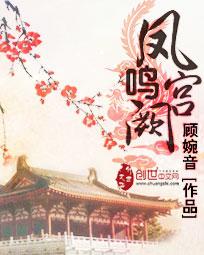SELECTION FROM THE ORLANDO FURIOSO.
您可以在百度里搜索“National Epics 艾草文学(www.321553.xyz)”查找最新章节!
SELECTION FROM THE ORLANDO FURIOSO.
THE DEATH OF ZERBINO.
As Orlando talked with Zerbino, whose life he had saved and to whom he had given his lady Isabel, also rescued by him, Mandricardo the Tartar king came up and challenged Orlando to single combat. While they fought, Mandricardo's steed, from which Orlando had slipped the rein, became unmanageable, and fled with its rider. Orlando asked Zerbino and Isabel to tell Mandricardo, if they overtook him, that he would wait for him in that place for three days to renew the battle. But while waiting, Orlando learned of Angelica's love for Medoro, and losing his senses from grief, threw away his armor, and went wandering through France. Zerbino and Isabel returned to the place to see if Mandricardo had returned, and there learned of Orlando's condition.
Far off, he {Zerbino} saw that something shining lay,
And spied Orlando's corselet on the ground;
And next his helm; but not that head-piece gay
Which whilem African Almontes crowned:
He in the thicket heard a courser neigh,
And, lifting up his visage at the sound,
Saw Brigliadoro the green herbage browse,
With rein yet hanging at his saddle-bows,
For Durindane, he sought the greenwood, round,
Which separate from the scabbard met his view;
And next the surcoat, but in tatters, found;
That, in a hundred rags, the champaign strew,
Zerbino and Isabel, in grief profound,
Stood looking on, nor what to think they knew:
They of all matters else might think, besides
The fury which the wretched count misguides.
Had but the lovers seen a drop of blood,
They might have well believed Orlando dead:
This while the pair, beside the neighboring flood,
Beheld a shepherd coming, pale with dread.
He just before, as on a rock he stood,
Had seen the wretch's fury; how he shed
His arms about the forest, tore his clothes,
Slew hinds, and caused a thousand other woes.
Questioned by good Zerbino, him the swain
Of all which there had chanced, informed aright.
Zerbino marvelled, and believed with pain,
Although the proofs were clear: This as it might,
He from his horse dismounted on the plain,
Full of compassion, in afflicted plight;
And went about, collecting from the ground
The various relics which were scattered round.
Isabel lights as well; and, where they lie
Dispersed, the various arms uniting goes.
Here Prince Zerbino all the arms unites,
And hangs like a fair trophy, on a pine.
And, to preserve them safe from errant knights,
Natives or foreigners, in one short line
Upon the sapling's verdant surface writes,
ORLANDO'S ARMS, KING CHARLES'S PALADINE.
As he would say, "Let none this harness move,
Who cannot with its lord his prowess prove!"
Zerbino having done the pious deed,
Is bowning him to climb his horse; when, lo!
The Tartar king arrives upon the mead.
He at the trophied pine-tree's gorgeous show,
Beseeches him the cause of this to read;
Who lets him (as rehearsed) the story know.
When, without further pause, the paynim lord
Hastes gladly to the pine, and takes the sword.
"None can (he said) the action reprehend,
Nor first I make the faulchion mine to-day;
And to its just possession I pretend
Where'er I find it, be it where it may.
Orlando, this not daring to defend,
Has feigned him mad, and cast the sword away;
But if the champion so excuse his shame,
This is no cause I should forego my claim."
"Take it not thence," to him Zerbino cried,
"Nor think to make it thine without a fight:
If so thou tookest Hector's arms of pride,
By theft thou hadst them, rather than by right."
Without more parley spurred upon each side,
Well matched in soul and valor, either knight.
Already echoed are a thousand blows;
Nor yet well entered are the encountering foes.
In 'scaping Durindane, a flame in show
(He shifts so swiftly), is the Scottish lord.
He leaps about his courser like a doe,
Where'er the road best footing does afford.
And well it is that he should not forego
An inch of vantage; who, if once that sword
Smite him, will join the enamored ghosts, which rove
Amid the mazes of the myrtle grove.
As the swift-footed dog, who does espy
Swine severed from his fellows, hunts him hard,
And circles round about; but he lies by
Till once the restless foe neglect his guard;
So, while the sword descends, or hangs on high,
Zerbino stands, attentive how to ward,
How to save life and honor from surprise;
And keeps a wary eye, and smites and flies.
On the other side, where'er the foe is seen
To threaten stroke in vain, or make it good,
He seems an Alpine wind, two hills between,
That in the month of March shakes leafy wood;
Which to the ground now bends the forest green,
Now whirls the broken boughs, at random strewed.
Although the prince wards many, in the end
One mighty stroke he cannot 'scape or fend.
In the end he cannot 'scape one downright blow,
Which enters, between sword and shield, his breast.
As perfect was the plate and corselet, so
Thick was the steel wherein his paunch was drest:
But the destructive weapon, falling low,
Equally opened either iron vest;
And cleft whate'er it swept in its descent,
And to the saddle-bow, through cuirass, went.
And, but that somewhat short the blow descends
It would Zerbino like a cane divide;
But him so little in the quick offends,
This scarce beyond the skin is scarified.
More than a span in length the wound extends;
Of little depth: of blood a tepid tide
To his feet descending, with a crimson line,
Stains the bright arms which on the warrior shine.
'T is so, I sometimes have been wont to view
A hand more white than alabaster, part
The silver cloth with ribbon red of hue;
A hand I often feel divide my heart.
Here little vantage young Zerbino drew
From strength and greater daring, and from art;
For in the temper of his arms and might,
Too much the Tartar king excelled the knight.
The fearful stroke was mightier in show,
Than in effect, by which the prince was prest;
So that poor Isabel, distraught with woe,
Felt her heart severed in her frozen breast.
The Scottish prince, all over in a glow,
With anger and resentment was possest,
And putting all his strength in either hand,
Smote full the Tartar's helmet with his brand.
Almost on his steed's neck the Tartar fell,
Bent by the weighty blow Zerbino sped;
And, had the helmet been unfenced by spell
The biting faulchion would have cleft his head.
The king, without delay, avenged him well,
"Nor I for you till other season," said,
"Will keep this gift;" and levelled at his crest,
Hoping to part Zerbino to the chest.
Zerbino, on the watch, whose eager eye
Waits on his wit, wheels quickly to the right;
But not withal so quickly, as to fly
The trenchant sword, which smote the shield outright,
And cleft from top to bottom equally;
Shearing the sleeve beneath it, and the knight
Smote on his arm; and next the harness rended,
And even to the champion's thigh descended.
Zerbino, here and there, seeks every way
By which to wound, nor yet his end obtains;
For, while he smites upon that armor gay,
Not even a feeble dint the coat retains.
On the other hand, the Tartar in the fray
Such vantage o'er the Scottish prince obtains,
Him he has wounded in seven parts or eight,
And reft his shield and half his helmet's plate.
He ever wastes his blood; his energies
Fail, though he feels it not, as't would appear;
Unharmed, the vigorous heart new force supplies
To the weak body of the cavalier.
His lady, during this, whose crimson dyes
Were chased by dread, to Doralice drew near,
And for the love of Heaven, the damsel wooed
To stop that evil and disastrous feud.
Doralice, who as courteous was as fair,
And ill-assured withal, how it would end,
Willingly granted Isabella's prayer,
And straight to truce and peace disposed her friend.
As well Zerbino, by the other's care,
Was brought his vengeful anger to suspend;
And, wending where she willed, the Scottish lord,
Left unachieved the adventure of the sword.
For to leave Durindana such misdeed
To him appeared, it past all other woes;
Though he could hardly sit upon his steed,
Through mighty loss of life-blood, which yet flows.
Now, when his anger and his heat secede,
After short interval, his anguish grows;
His anguish grows, with such impetuous pains,
He feels that life is ebbing from his veins.
For weakness can the prince no further hie,
And so beside a fount is forced to stay:
Him to assist the pitying maid would try,
But knows not what to do, nor what to say.
For lack of comfort she beholds him die;
Since every city is too far away,
Where in this need she could resort to leech,
Whose succor she might purchase or beseech.
She, blaming fortune, and the cruel sky,
Can only utter fond complaints and vain.
"Why sank I not in ocean," (was her cry),
"When first I reared my sail upon the main?"
Zerbino, who on her his languid eye
Had fixt, as she bemoaned her, felt more pain
Than that enduring and strong anguish bred,
Through which the suffering youth was well-nigh dead.
"So be thou pleased, my heart," (Zerbino cried),
"To love me yet, when I am dead and gone,
As to abandon thee without a guide,
And not to die, distresses me alone.
For did it me in place secure betide
To end my days, this earthly journey done,
I cheerful, and content, and fully blest
Would die, since I should die upon thy breast
"But since to abandon thee, to whom a prize
I know not, my sad fate compels, I swear,
My Isabella, by that mouth, those eyes,
By what enchained me first, that lovely hair;
My spirit, troubled and despairing, hies
Into hell's deep and gloomy bottom; where
To think, thou wert abandoned so by me,
Of all its woes the heaviest pain will be."
At this the sorrowing Isabel, declining
Her mournful face, which with her tears o'erflows,
Towards the sufferer, and her mouth conjoining
To her Zerbino's, languid as a rose;
Rose gathered out of season, and which, pining
Fades where it on the shadowy hedgerow grows,
Exclaims, "Without me think not so, my heart,
On this your last, long journey to depart.
"Of this, my heart, conceive not any fear.
For I will follow thee to heaven or hell;
It fits our souls together quit this sphere,
Together go, for aye together dwell.
No sooner closed thine eyelids shall appear,
Than either me internal grief will quell,
Or, has it not such power, I here protest,
I with this sword to-day will pierce my breast.
"I of our bodies cherish hope not light,
That they shall have a happier fate when dead;
Together to entomb them, may some wight,
Haply by pity moved, be hither led."
She the poor remnants of his vital sprite
Went on collecting, as these words she said;
And while yet aught remains, with mournful lips,
The last faint breath of life devoutly sips.
'T was here his feeble voice Zerbino manned,
Crying, "My deity, I beg and pray,
By that love witnessed, when thy father's land
Thou quittedst for my sake; and, if I may
In anything command thee, I command,
That, with God's pleasure, thou live-out thy day;
Nor ever banish from thy memory,
That, well as man can love, have I loved thee.
"God haply will provide thee with good aid,
To free thee from each churlish deed I fear;
As when in the dark cavern thou wast stayed,
He sent, to rescue thee. Andante's peer;
So he (grammercy!) succored thee dismayed
At sea, and from the wicked Biscayneer.
And, if thou must choose death, in place of worse,
Then only choose it as a leaser curse."
I think not these last words of Scotland's knight
Were so exprest, that he was understood:
With these, he finished, like a feeble light,
Which needs supply of wax, or other food.
—Who is there, that has power to tell aright
The gentle Isabella's doleful mood?
When stiff, her loved Zerbino, with pale face,
And cold as ice, remained in her embrace.
On the ensanguined corse, in sorrow drowned,
The damsel throws herself, in her despair,
And shrieks so loud that wood and plain resound
For many miles about; nor does she spare
Bosom or cheek; but still, with cruel wound,
One and the other smites the afflicted fair;
And wrongs her curling locks of golden grain,
Aye calling on the well-loved youth in vain.
She with such rage, such fury, was possest,
That, in her transport, she Zerbino's glaive
Would easily have turned against her breast,
Ill keeping the command her lover gave;
But that a hermit, from his neighboring rest,
Accustomed oft to seek the fountain-wave,
His flagon at the cooling stream to fill,
Opposed him to the damsel's evil will.
The reverend father, who with natural sense
Abundant goodness happily combined,
And, with ensamples fraught and eloquence,
Was full of charity towards mankind,
With efficacious reasons her did fence,
And to endurance Isabel inclined;
Placing, from ancient Testament and new,
Women, as in a mirror, for her view.
The holy man next made the damsel see,
That save in God there was no true content,
And proved all other hope was transitory,
Fleeting, of little worth, and quickly spent;
And urged withal so earnestly his plea,
He changed her ill and obstinate intent;
And made her, for the rest of life, desire
To live devoted to her heavenly sire.
Not that she would her mighty love forbear
For her dead lord, nor yet his relics slight;
These, did she halt or journey, everywhere
Would Isabel have with her, day and night.
The hermit therefore seconding her care,
Who, for his age, was sound and full of might,
They on his mournful horse Zerbino placed,
And traversed many a day that woodland waste.
He thought to bear her to Provence, where, near
The city of Marseilles, a borough stood,
Which had a sumptuous monastery; here
Of ladies was a holy sisterhood.
Rose's Translation, Canto XXIV. National Epics




